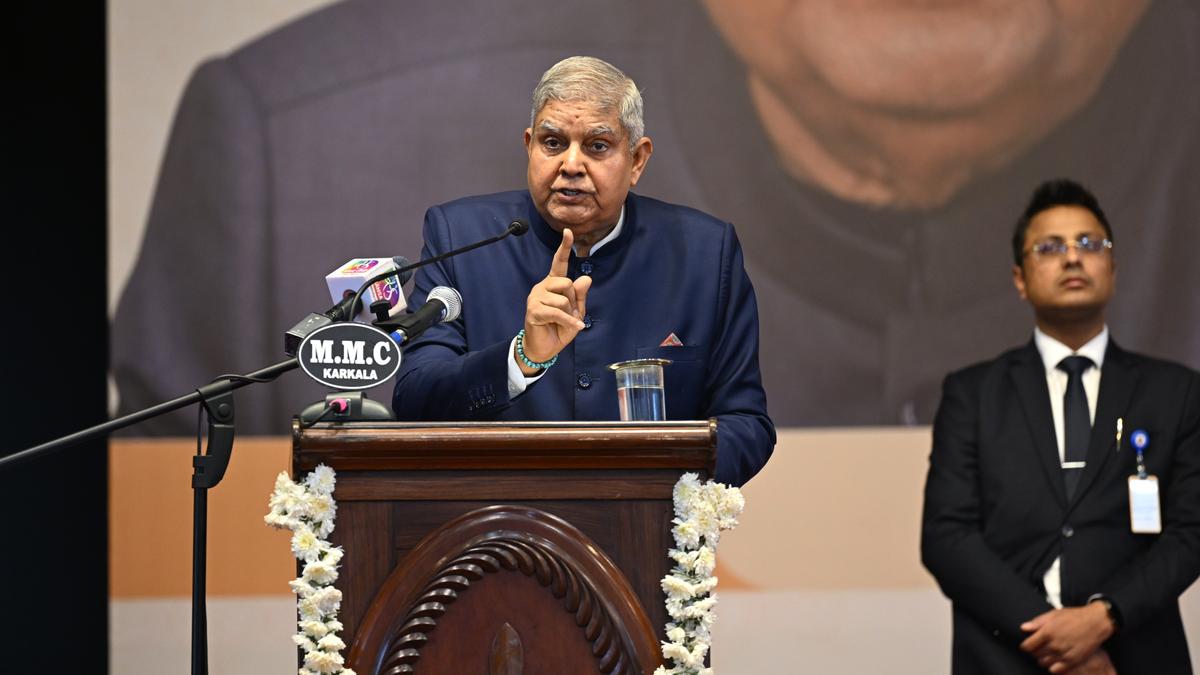
India's Farmers' Protests: Is Dialogue the Only Way Forward?
Vice President Dhankhar's Urgent Plea: Is Dialogue the Only Path to Resolve Farmer Protests?
India's farmers have been protesting for months, and the situation is reaching a boiling point. With the central government finally agreeing to talks, the Vice President's impassioned speech has brought this critical issue to the forefront. Will dialogue be enough to resolve this crisis, or are other measures needed? This article delves deep into the heart of this crucial national debate, exploring the necessity of open communication and mutual understanding in overcoming challenges to India's democratic ideals.
The Importance of Dialogue in a Democracy: A Wake-Up Call
In a recent address, Vice President Jagdeep Dhankhar passionately emphasized the critical role of dialogue in resolving conflicts within a democratic framework. He highlighted the urgent need for open and respectful conversations that prioritize mutual understanding and address the concerns of various stakeholders. Dhankhar warned that the absence of dialogue is nothing short of a death knell for India's democratic traditions.
The Vice President's Plea
Mr. Dhankhar didn't merely express a need for conversations but instead appealed to the Central Government, repeatedly urging immediate engagement with the protesting farmers. He underscored that a true democracy thrives on discourse and freedom of expression. He astutely highlighted the enriching potential of conversations, as open dialogue facilitates humility, encourages reevaluation of perspectives, and contributes towards effective decision-making. He warned that neglecting to acknowledge these varied viewpoints risks undermining democratic norms and could result in an unraveling of fundamental democratic institutions.
The Necessity for Unfettered Conversation
Mr. Dhankhar pointedly described his vision of an ideal dialogue: a process completely free from coercion and fear. Such dialogue must uphold the freedom of speech, guarantee respectful listening without ridicule, and guarantee a level playing field, one where ideas receive thorough consideration. Dhankhar emphatically argued that if such dialogue does not materialize and lead to solutions, India's democracy may ultimately cease to function.
Farmer Protests: A Time for Action
The Vice President's remarks come in the context of ongoing farmers' protests across the country. This protracted crisis underscores the importance of open dialogue between protesting farmers and the Government. Many hope that the Government's agreement to discuss these matters will pave the way for compromise.
Promises Made, Promises Broken?
Dhankhar explicitly alluded to potential broken promises made to the farmers, emphasizing the gravity of the situation. These concerns necessitate immediate redressal. This urgency has added significant weight to the existing unrest and demands rapid solutions from the government. Addressing the grievances of farmers must be the first order of business to avoid further escalation.
A Call to Synergistic Action
The Vice President urged a harmonious effort among stakeholders—an alignment where the focus lies not on self-preservation or ideological entrenchment, but rather on collectively working towards mutually beneficial solutions. Only by doing this will it be possible to meet the goals set.
The Path Forward: Embracing Dialogue for a Stronger Democracy
As India navigates through this pivotal moment, it is crucial to underscore that effective problem-solving necessitates active engagement and a willingness to hear different viewpoints. This calls for a shift toward an approach rooted in inclusiveness, empathy, and compromise. By acknowledging farmers' valid concerns, the nation will embark on a journey that promotes solidarity and fortifies democratic stability.
A Time for Compromise and Consensus Building
It is vital to focus on mutual compromises and collaborative consensus building, fostering solutions where the needs and concerns of both farmers and the government are recognized. A mutual understanding is vital to moving the dialogue forward. Only a dialogue focused on mutual understanding can prevent a crisis from further deepening.
Preventing Future Conflicts Through Open Communication
Cultivating open, continuous dialogue can prevent future conflicts by providing avenues for airing grievances. In this context, establishing open and transparent channels of communication is indispensable. The farmers’ concerns deserve a proper platform and dedicated listening ear from the government. Open communication prevents situations where the voices of protestors go unheard, leading to anger and frustrations that erupt into protests.
Take Away Points
- Dialogue is absolutely crucial for a thriving democracy and must take place without fear, coercion, or ridicule.
- Addressing the concerns of India's protesting farmers through open and honest dialogue is essential for maintaining democratic principles.
- A focus on consensus and compromise, recognizing the needs of both the government and farmers is critical to creating positive outcomes and fostering resolution to protests.
- Open communication channels are vital for conflict prevention and should be established to prevent future clashes between the farmers and the government.








